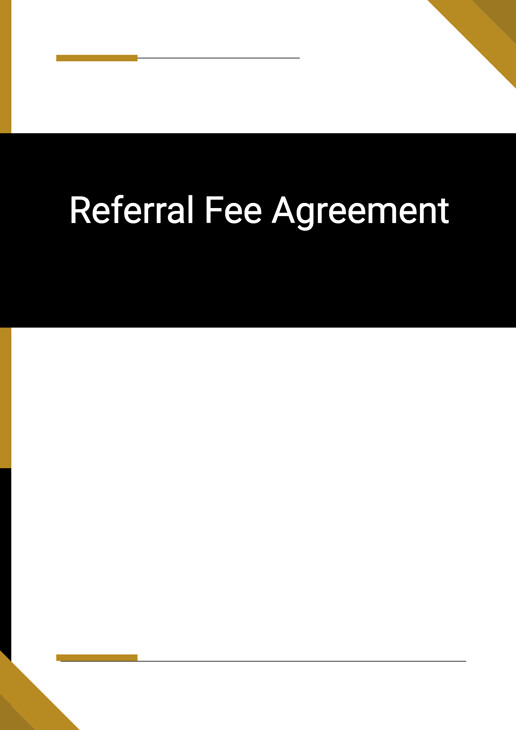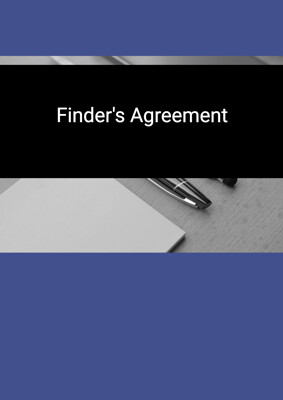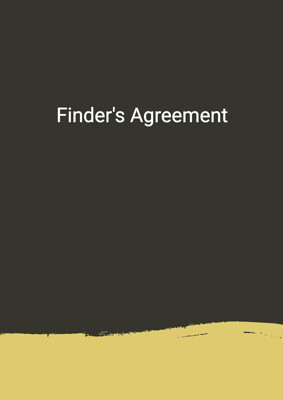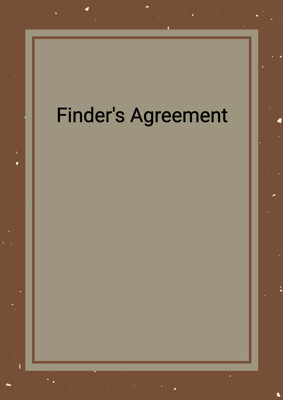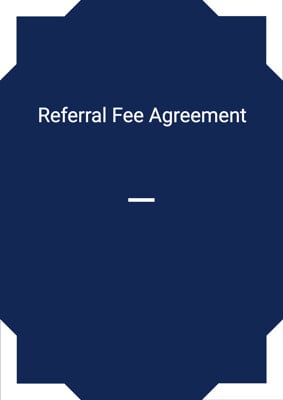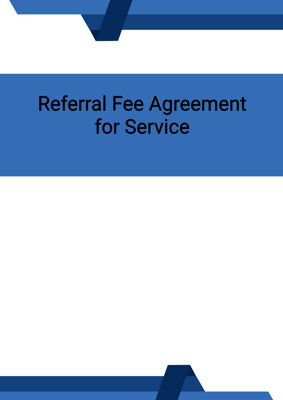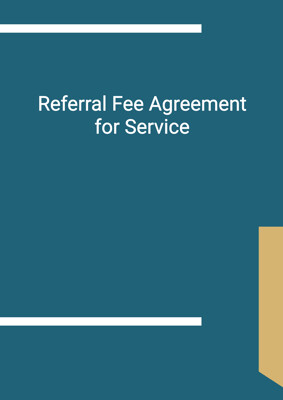How to Tailor the Document for Your Need?
01
Create Document
Fill in the details of the parties. You can click the "Fill with Member’s Information" button to complete it with information saved to your account.
02
Fill Information
Please fill in any additional information by following the step-by-step guide on the left hand side of the preview document and click the "Next" button.
03
Get Document
When you are done, click the "Get Document" button and you can download the document in Word or PDF format.
04
Review Document
Please get all parties to review the document carefully and make any final modifications to ensure that the details are correct before signing the document.
Document Preview
Document Description
The Referral Fee Agreement is a document that outlines the terms and conditions for a referral fee arrangement between two parties: the buyer and the referrer. The document begins by highlighting the importance of the agreement, which is to establish a mutually beneficial relationship where the referrer refers potential sellers of goods or services to the buyer in exchange for a referral fee.
The agreement is divided into several sections, each addressing specific aspects of the referral fee arrangement. The first section, titled 'Interpretation', provides definitions for key terms used throughout the document, such as 'excluded persons', 'goods or services', and 'value of goods or service'. These definitions ensure clarity and understanding between the parties.
The second section, titled 'Referral Term', outlines the duration of the agreement. Depending on the chosen option, the term can be fixed for a specific number of months or extended by mutual agreement. This section also states that the buyer engages the referrer to source independent third-party sellers for the goods or services.
The third section, titled 'Referral Fee', specifies the amount and calculation method for the referral fee. The fee can be either a fixed amount per seller referred or a percentage of the net value of goods or services purchased as a result of the referral. The section also addresses the invoicing and payment process, stating that the referrer issues an invoice to the buyer, and payment is made within a specified timeframe.
The fourth section, titled 'Responsibilities of the Parties', outlines the obligations of both the referrer and the buyer. The referrer agrees to use its existing connections and channels to find prospective sellers for the buyer. The referrer may disclose relevant information about the buyer to the sellers but only to the extent necessary to promote the services. The buyer, on the other hand, is responsible for purchasing the agreed goods or services from the referred sellers and complying with applicable laws and regulations.
The fifth section, titled 'Confidentiality', addresses the confidentiality of information shared between the parties. The referrer agrees to treat any confidential information received from the buyer as confidential and not to disclose it without the buyer's consent. However, the referrer may disclose relevant parts of the confidential information to sellers and potential sellers as necessary for fulfilling its duties.
The sixth section, titled 'General', covers various general provisions, including restrictions on the referrer's ability to assign rights or subcontract obligations without the buyer's consent, the independent contractor relationship between the parties, and the procedures for giving notices.
The seventh section, titled 'Termination', outlines the circumstances under which either party can terminate the agreement, such as a breach of provisions or insolvency of one party. It also specifies the consequences of termination, including the cessation of promotional activities, settlement of outstanding referral fees, and the release of further obligations.
The eighth section, titled 'Consequences of Termination', further elaborates on the consequences of termination, such as the continuation of certain provisions, the absence of compensation claims except for unpaid referral fees, and the release of further obligations.
The ninth section, titled 'No Rights under Contracts for Third Parties', clarifies that third parties have no rights to enforce the terms of the agreement.
The tenth section, titled 'Arbitration and Proper Law', encourages the parties to resolve any disputes amicably and in good faith. It also includes a jurisdiction clause.
The eleventh and final section, titled 'Notices and Service', specifies the methods and deemed times of giving notices between the parties. It also provides the addresses and contact information for each party.
Overall, the Referral Fee Agreement is a comprehensive document that covers all aspects of the referral fee arrangement between the buyer and the referrer. It ensures clarity, protection of confidential information, and the establishment of rights and responsibilities for both parties.
How to use this document?
To use the Referral Fee Agreement effectively, follow these steps:
1. Interpretation: Familiarize yourself with the definitions provided in the agreement, such as 'excluded persons', 'goods or services', and 'value of goods or service'. This will help you understand the terminology used throughout the document.
2. Referral Term: Determine the desired duration of the agreement. Choose between a fixed term or a term that can be extended by mutual agreement. Ensure that both parties are in agreement on the duration.
3. Referral Fee: Decide on the appropriate referral fee structure based on your preferences and needs. Choose between a fixed fee per seller referred or a percentage of the net value of goods or services purchased. Consider factors such as the value of the referrals and the potential sales generated.
4. Invoicing and Payment: Establish a clear process for invoicing and payment. Determine the timeframe within which the referrer should issue an invoice, and specify the payment terms. Ensure that both parties are aware of their obligations and responsibilities regarding payment.
5. Responsibilities of the Parties: Understand the obligations outlined in the agreement for both the referrer and the buyer. The referrer should use their existing connections to find potential sellers, while the buyer is responsible for purchasing the goods or services from the referred sellers. Comply with any applicable laws and regulations.
6. Confidentiality: Respect the confidentiality of any information shared between the parties. Only disclose relevant information to sellers and potential sellers as necessary for promoting the services. Ensure that any confidential information is handled securely and in accordance with the agreement.
7. General Provisions: Familiarize yourself with the general provisions of the agreement, such as restrictions on assigning rights or subcontracting obligations. Understand the independent contractor relationship between the parties and the procedures for giving notices.
8. Termination: Be aware of the circumstances under which either party can terminate the agreement. Understand the consequences of termination, such as the cessation of promotional activities and the settlement of outstanding referral fees.
9. No Rights under Contracts for Third Parties: Understand that third parties have no rights to enforce the terms of the agreement.
10. Arbitration and Proper Law: If any disputes arise, make efforts to resolve them amicably and in good faith. Consider the jurisdiction clause and the proper law applicable to the agreement.
11. Notices and Service: Follow the specified methods and deemed times for giving notices between the parties. Ensure that the addresses and contact information provided in the agreement are accurate and up to date.
By following these steps, you can effectively use the Referral Fee Agreement and establish a successful referral fee arrangement between the buyer and the referrer.
Not the right document?
Don’t worry, we have thousands of documents for you to choose from:
